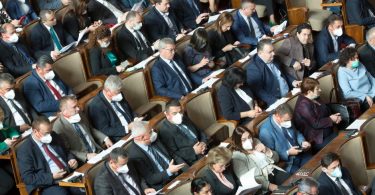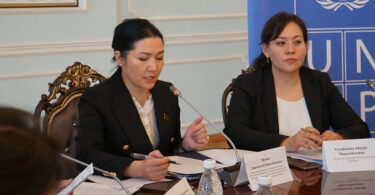Constitutional changes raise serious concerns over respect for democratic standards in Kyrgyzstan, Venice Commission and ODIHR say

Strasbourg/Warsaw, 22 March 2021 – Kyrgyzstan’s draft constitution would result in a complete change of the country’s constitutional order if adopted and raises grave concerns over the lack of respect for the principles of the rule of law, separation of powers, and inherent lack of checks and balances, the OSCE Office for Democratic Institutions and Human Rights (ODIHR) and the Venice Commission of the Council of Europe said in a joint legal opinion.
While the joint opinion notes some positive changes in the draft constitution, such as giving human rights and freedoms a prominent place in the overall framework and re-establishing the Constitutional Court in line with earlier recommendations, it also finds that many provisions regulating the institutional framework and separation of powers as well as the foreseen timeline and procedures leading to the adoption of the constitutional amendments raise serious concerns. As well as demonstrating a lack of respect for the principles of rule of law and legality, they also took place with little or no public consultation or parliamentary debate.
One of the fundamental concerns with the draft constitution in its current form is the overly prominent role and power of the president in relation to the other branches of government, weakening the role of parliament and potentially curtailing judicial independence. This creates a real risk of undermining the separation of powers and the rule of law in the Kyrgyz Republic.
ODIHR and the Venice Commission therefore recommend that the national authorities:
- ensure that the constitutional reform process allows for informed, inclusive and meaningful discussions within and outside parliament, with the participation of all relevant stakeholders, guaranteeing adequate time for discussion of the draft constitution at all levels;
- review the privileges given to the president in order to ensure the separation of powers, including by completely reconsidering the power to single-handedly appoint and dismiss almost the entire state administration and/or key office-holders (including the Cabinet of Ministers, Prosecutor General, Ombudsman for Children’s rights,), as well as the president’s far-reaching powers in the selection and dismissal of judges of the highest and lower level courts, and restricting the president’s power to initiate laws and referendums;
- provide stronger oversight capacities to the parliament, including through committees to both initiate and review draft laws and ensure an appropriate budget to support this important function of checks over the powers of the president and the executive;
- reinforce the independence of the judiciary by specifying in the draft constitution that judge members of the Judicial Council are chosen by the judiciary, explicitly stipulating the length and security of tenure, and strengthening the decision-making powers of the Judicial Council regarding the appointment, promotion, transfer and disciplinary procedure for all judges, except for the Constitutional Court judges;
- revise the provisions on human rights and fundamental freedoms, avoiding vague wording and language in the formulation both of the rights of individuals and the obligations of the State, clearly state the absolute nature of specific rights and freedoms that remain applicable regardless of circumstances, even in a state of emergency, and revise the provisions related to the media, freedom of expression and access to information in line with international standards.
JOINT OPINION ON THE DRAFT CONSTITUTION OF THE KYRGYZ REPUBLIC
















